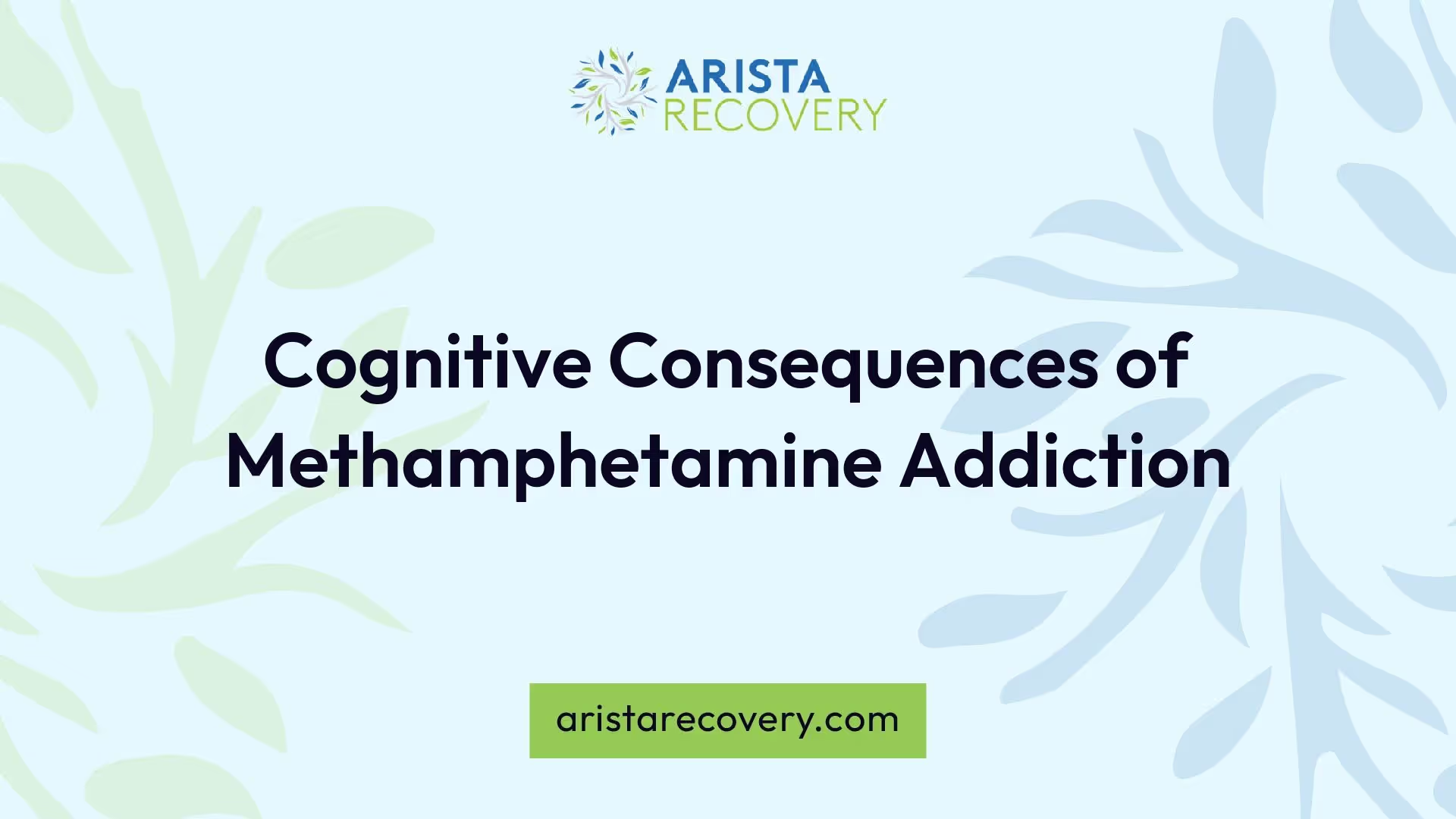
Cognitive Consequences of Methamphetamine Addiction
Understanding Methamphetamine Addiction
Methamphetamine addiction significantly affects cognitive functions and decision-making abilities. It’s important to explore these facets to understand the full impact of this substance abuse.

Cognitive Impairments in Methamphetamine Addiction
Methamphetamine Understanding Methamphetamine Addiction
Methamphetamine addiction significantly affects cognitive functions and decision-making abilities. It’s important to explore these facets to understand the full impact of this substance abuse.
Cognitive Impairments in Methamphetamine Addiction
Methamphetamine abuse is linked to various cognitive deficits. Individuals suffering from this addiction often experience impairments in key cognitive areas, including executive functioning and memory. Chronic use of methamphetamine can lead to notable cognitive deficits, impacting both everyday functioning and overall mental health [1].
Cognitive impairments associated with meth addiction can be summarized in the table below:
This table highlights the pivotal areas where individuals may struggle due to cognitive consequences of methamphetamine addiction.
Decision-Making Challenges in Methamphetamine Addiction
Decision-making is another critical area affected by methamphetamine use. Research indicates that individuals with methamphetamine use disorder often show maladaptive decision-making. This is characterized by a higher inclination to favor risky choices that promise immediate rewards, rather than considering long-term consequences.
The impact of meth addiction on decision-making can complicate treatment efforts. Intense cravings and altered judgment may lead individuals to prioritize substance use over their health and well-being. Understanding these challenges is essential for developing effective treatment strategies. For further insights on supporting individuals in recovery, visit our page on ways to be supportive of recovery.
Overall, cognitive impairments and decision-making difficulties present significant hurdles for those grappling with methamphetamine addiction, underscoring the importance of targeted interventions and support during recovery.
Mechanisms of Methamphetamine Addiction
Understanding the mechanisms of methamphetamine addiction is crucial in addressing its cognitive consequences. This section will delve into neuroplasticity and brain circuit remodeling, as well as the dopamine increase associated with reward perception and addiction.
Neuroplasticity and Brain Circuit Remodeling
Methamphetamine addiction fundamentally alters brain structure and function. The concept of neuroplasticity, which refers to the brain's ability to reorganize and adapt, is particularly relevant in understanding addiction. Chronic use of methamphetamine prompts remodeling of brain circuits tied to motivation, emotion, and executive function. These changes can lead to impaired cognitive functions such as attention, working memory, and decision-making [4].
The adaptation of neural pathways makes recovery challenging, as these remodeled circuits may sustain addictive behaviors and cravings. The result is a compulsive need to consume the drug despite understanding its detrimental effects. Patients with methamphetamine addiction often face cognitive deficits, including difficulties in social cognition and flexibility, further complicating their rehabilitation process.
Dopamine Increase and Reward Association
One of the primary pharmacological effects of methamphetamine is the significant increase in dopamine levels in the brain. Dopamine is a neurotransmitter closely tied to the sensation of pleasure and reward. Repeated intake of methamphetamine results in heightened extracellular dopamine levels, creating a powerful reinforcing effect that encourages continued use [4].
This alteration in the reward processing system leads to reduced sensitivity to non-drug-related rewards, making everyday pleasurable experiences less appealing. As a result, individuals with methamphetamine addiction often prioritize drug use over other rewarding activities, contributing to the compulsive behavior characteristic of addiction. Furthermore, the chronic nature of methamphetamine addiction is marked by a relapse rate of up to 77% within five years after treatment [1].
With the understanding of these mechanisms, it is evident that the cognitive effects of methamphetamine addiction are profound and multifaceted, requiring comprehensive strategies that address the neurobiological underpinnings of addiction in order to improve recovery outcomes. For more information about supporting recovery from addiction, visit our page on ways to be supportive of recovery.
Impact on Cognitive Functions
Methamphetamine addiction leads to significant cognitive consequences, affecting various aspects of mental functioning. This section will discuss executive functioning deficits and issues with memory and attention.
Executive Functioning Deficits
Chronic use of methamphetamine disrupts cortical control over cognition, resulting in significant impairments in executive functions. These functions include planning, reasoning, problem-solving, and impulse control. Studies indicate that individuals with methamphetamine use disorder often experience medium-sized deficits in executive function compared to non-users [5].
The following table outlines some of the specific executive function challenges faced by methamphetamine users:
Impaired Memory and Attention
Memory and attention are also commonly affected in individuals with methamphetamine addiction. Research has shown that chronic users exhibit deficits in both short-term and long-term memory, impacting their ability to recall information learned prior to or during addiction. Their academic performance often suffers as a result, with findings indicating that childhood grade point averages for methamphetamine users are significantly lower than those of their peers.
Inattention and processing speed are additional areas of concern. Methamphetamine users commonly have issues with sustaining attention during tasks and slow reaction times, which can impact daily functioning.
These cognitive impairments serve as barriers to effective rehabilitation and recovery from addiction. Addressing these deficits through targeted therapies can be essential for improving cognitive functioning in recovering individuals. For those supporting loved ones through treatment, understanding these challenges can help tailor supportive efforts effectively. Explore ways to be supportive of recovery for more insights.
Recovery and Long-Term Effects
Methamphetamine addiction exerts a profound effect on cognitive functions. However, recovery is possible, and individuals may experience cognitive improvement after a period of abstinence. This section will explore the cognitive improvements observed in recovering individuals and the challenges they may face during rehabilitation.
Cognitive Improvement After Abstinence
Research indicates that cognitive functions can begin to recover after at least one year of abstinence from methamphetamine. A study highlighted by researchers from the University of California at Davis found that individuals who had been abstinent for a minimum of one year showed no significant differences in their Stroop attention test results compared to non-drug users.
The following table summarizes cognitive recovery associated with different durations of abstinence:
The longer recovery periods correlate with better performance on cognitive tests. Further, cognitive processes such as impulse control and attentional focus may require prolonged sobriety to fully regenerate [3]. Early intervention and consistent treatment are crucial for promoting overall health, as well as mental and cognitive wellness post-addiction.
Challenges in Rehabilitation
Despite the potential for cognitive recovery, individuals in rehabilitation may face significant challenges. One major obstacle is the need for sustained abstinence, as cognitive deficits can persist well after the physical symptoms of withdrawal subside. Many recovering addicts experience difficulties with impulse control, decision making, and attention during the early stages of recovery.
The following factors can contribute to these ongoing challenges:
- Duration of Addiction: Longer addiction periods often correlate with more profound cognitive impairment.
- Severity of Use: Individuals with a history of heavy methamphetamine use may find the recovery of cognitive functions even more challenging.
- Co-occurring Disorders: Mental health issues such as depression or anxiety can complicate the recovery process, impacting cognitive performance.
A sustained commitment to treatment, as well as support from family and friends, can aid recovery efforts [7]. Recognizing the interplay between addiction and cognitive consequences is essential in understanding recovery from methamphetamine addiction.
For those navigating this journey, it is vital to seek professional help and engage in comprehensive rehabilitation programs. Challenges will arise, but with time and appropriate support, cognitive functions may improve significantly.
Brain Changes and Structural Impact
Methamphetamine addiction significantly alters brain structure and function, particularly affecting areas crucial for cognitive processes. Two primary regions impacted are the hippocampus and the frontal lobe.
Hippocampus and Frontal Lobe Effects
The hippocampus plays a critical role in memory and learning. Methamphetamine can negatively affect its structure by causing a surge of dopamine, which not only triggers cravings for the substance but also compromises memory functions Cumberland Heights. Furthermore, the frontal lobe, responsible for rational thinking and decision-making, is also impacted by meth use. This impairment makes it increasingly difficult for individuals to engage in logical thought processes and manage day-to-day activities.
Recovery Timeline and Brain Function
Recovery from the cognitive consequences of methamphetamine addiction varies widely among individuals. While many may experience improvements in brain function over time, some cognitive capabilities may take years to fully recover, and in severe cases, may not return to baseline levels Cumberland Heights.
Research shows that brain functions can improve significantly after at least one year of abstinence from methamphetamine. Studies indicate that individuals who maintain sobriety for a minimum of one year may demonstrate cognitive functions, such as impulse control and attentional focus, similar to those of non-drug users, emphasizing the benefits of prolonged abstinence Promises.
The timeline for recovery is crucial for treatment programs, highlighting the need for a supportive environment that allows sufficient time for cognitive recovery Ruth Salo et al.. Early intervention is critical in improving one's mental health and capabilities post-addiction, creating a pathway toward a healthier future. For more strategies on how to support loved ones in recovery, visit our article on five ways to support a loved one through treatment.
Decision-Making and Risk-Taking
Effects on Decision-Making Abilities
Methamphetamine addiction significantly impacts an individual's decision-making capabilities. Research indicates that users often experience cognitive impairment and altered judgment during and after active addiction. Deficits in decision-making are linked to changes in brain function, particularly in areas responsible for executive functions, which include planning, reasoning, and problem-solving. Studies have shown that methamphetamine users exhibit medium-sized cognitive deficits in various areas, including decision-making abilities [5].
The implications of these deficits extend beyond personal choices and may affect treatment outcomes. Individuals with substance use disorders, including those addicted to methamphetamine, tend to struggle with effective decision-making, which can impact their ability to engage in and benefit from therapeutic interventions such as contingency management therapy [2].
Risk Assessment in Methamphetamine Users
Risk assessment is another area markedly affected by methamphetamine addiction. Users often demonstrate a distorted perception of risk, leading to impulsive behaviors. This impaired judgment may result in choices that disregard personal safety and well-being. Methamphetamine users show cognitive deficits relative to their childhood academic performance, suggesting a significant decline in their ability to evaluate risks appropriately compared to their peers, whose abilities remained stable [5].
Chronic use of methamphetamine correlates with detrimental changes in how individuals perceive and respond to risk, potentially leading to adverse outcomes, such as increased vulnerability to relapse after treatment. Understanding these patterns is essential for developing effective interventions that address not only the addiction itself but also the associated cognitive consequences of methamphetamine addiction.
For those looking to support loved ones struggling with these challenges, exploring resources on ways to be supportive of recovery may provide valuable guidance.
References
[1]: https://pmc.ncbi.nlm.nih.gov/articles/PMC6411911/
[2]: https://www.frontiersin.org/articles/10.3389/fpsyt.2020.00022/full#supplementary-material
[3]: https://www.promises.com/addiction-blog/brain-function-can-recover-after-a-year-of-abstinence-from-methamphetamine/
[4]: https://pubmed.ncbi.nlm.nih.gov/30611760/
[5]: https://www.ncbi.nlm.nih.gov/pmc/articles/PMC6006320/
[6]: https://www.cumberlandheights.org/blogs/does-methamphetamine-affect-learning-and-memory-capabilities/
When mental health challenges and addiction intersect, it can feel isolating. At Arista, we offer compassionate, evidence-based, and trauma-informed care to help you heal, grow, and move forward.
You’re not alone in this.
When mental health challenges and addiction intersect, it can feel isolating. At Arista, we offer compassionate, evidence-based, and trauma-informed care to help you heal, grow, and move forward.
Support that moves with you.
You’ve taken a brave first step. At Arista Recovery, we’re here to help you continue with best-in-class care designed for long-term healing and support.
.webp)






